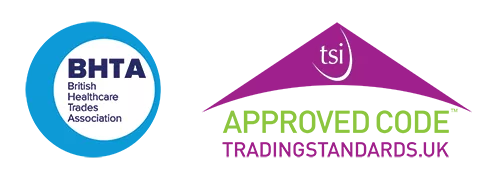Mobility Scooter Finance
At Monarch Mobility, we offer a range of payment options for our mobility scooters, powerchairs, and rise-and-recliner chairs, including cash, card, and finance plans. We believe everyone has the right to enjoy the independence and freedom that owning a scooter can bring. Explore the different payment methods available below and choose the one that works best for you.
If you would like to talk to one of our friendly team about the various options available in more detail, contact us today at 0800 002 9633.
Finance
Looking for a simple and flexible way to finance mobility scooters?
At Monarch Mobility, this service is provided by trusted companies we partner with:
With this finance option, you can take any amount you specify, and they’ll send a proposal link to your email address for you to fulfil yourself. That way, our customers can choose to finance mobility scooters remotely or with one of our representatives on-site.
As a customer, you’ll pay an initial deposit and then continue with monthly payments for 12 months until the total finance amount (at 0% interest) has been paid.
Buy a mobility scooter on finance today, and our team will be more than happy to assist you with choosing the best finance options for a mobility scooter or powerchair.
Pay with cash
Mobility scooters bought with cash may be the best option for some. We know that some people still prefer to pay for most items with cash, and we are happy to accept this as payment for any of our mobility scooters, rise and recline chairs or other products. Monarch Mobility has been established as a trusted brand since 2001, so you can rest assured that your money will be in safe hands when you buy your next mobility aid at our showroom.
It is, of course, important to acknowledge that carrying a significant amount of money on your person comes with inevitable security risks. For this reason, ensure you always have someone you trust with you when leaving the house with cash, or consider switching to alternative payment methods for large purchases.
Pay with card
The most popular way to pay for our mobility scooters outright is via debit or credit card. Choosing this option will give you the peace of mind of knowing your new vehicle has been fully paid for before you even take it away, so you can look forward to years of use without worrying about any further expenses.
Paying for a mobility scooter by card will not come with any hidden fees. As we are fully authorised and regulated by the Financial Conduct Authority, we can guarantee that every penny you spend at Monarch Mobility will be secure and fully accounted for.
Trust our approach to business and customer service
We’ve operated in the mobility market for over two decades and are one of the UK’s largest mobility scooter dealers and mobility aid retailers. Across our team, we care about finding the best solutions for you. From high-quality disability equipment to finance options that suit you, we’re here to help!
We offer excellent customer service and support both in person and online. With a long history of helping customers in need, we know what the right equipment can mean. From enjoying your independence to revitalising your routine, we built our business on helping others live life to the fullest.
Whether you’re looking for mobility scooter financing options or simply learning a little more about us, discover the difference with Monarch Mobility.
Browse our full range of mobility scooters and powerchairs for your ideal mobility aid, and choose your preferred payment option today.
Rights to Cancel
Exercising your right to cancel (Consumer Contracts Regulations 2013). Depending on which of our products you have ordered , you may have the legal right to change your mind within 14 days and receive a refund. Products which are excluded from your right to cancel are set out below.
- Products which are made to your specifications e.g. beds made to an agreed hight
- Products which you have personalised by making changes to the standard products offered; or
- Products sealed for health protection or hygiene purposes once these have been unsealed after you received them
How long do I have to change my mind? You have 14 days starting from the first day after you received the goods.



